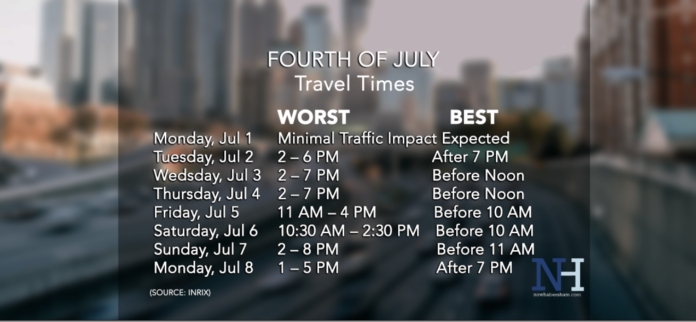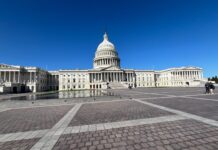
With the summer season in full swing, many Americans are taking extended trips to celebrate Independence Day. This year, a record number of people are expected to head out for vacation, with 70.9 million people traveling 50 miles or more from home over the holiday period.
The report, released by AAA Travel, projects the number of travelers over July 4 will be up 5% over 2023. The agency predicts that 60.6 million people will travel by car over the holiday week, breaking the previous record of 55.3 million in 2019.
“Drivers in large metro areas can expect the worst traffic delays on Wednesday, July 3rd, as they leave town, and Sunday, July 7th, as they return,” said Bob Pishue, transportation analyst at INRIX. “Road trips over the holiday week could take up to 67% longer than normal.”
READ Now Hab’s July 4th celebration guide
Gas prices
AAA says gas prices are lower than last year, with the national average price being $3.53. This is expected to continue down in the lead-up to the holiday, with prices likely to level off and remain relatively stable until after Labor Day.
However, the agency warned that the hurricane season, which is currently underway, could impact gas prices if a storm were to negatively impact Gulf Coast oil production and refining centers.
Millions will take to the skies
The number of air travelers is also expected to reach a record high, with 5.74 million people expected to fly to their July 4th destinations.
AAA booking data shows domestic airfare is 2% cheaper this Independence Day week compared to last year, and the average price for a domestic roundtrip ticket is $800. Airports will be packed throughout the week.
Airports are expected to be packed throughout the week, with the agency recommending arriving two hours early and reserving parking ahead of time. Travelers are also encouraged to travel with carry-on luggage, as opposed to checked bags, to save time and money.
More than 4.6 million people are expected to travel by other modes of transportation, including buses, cruises, and trains.







